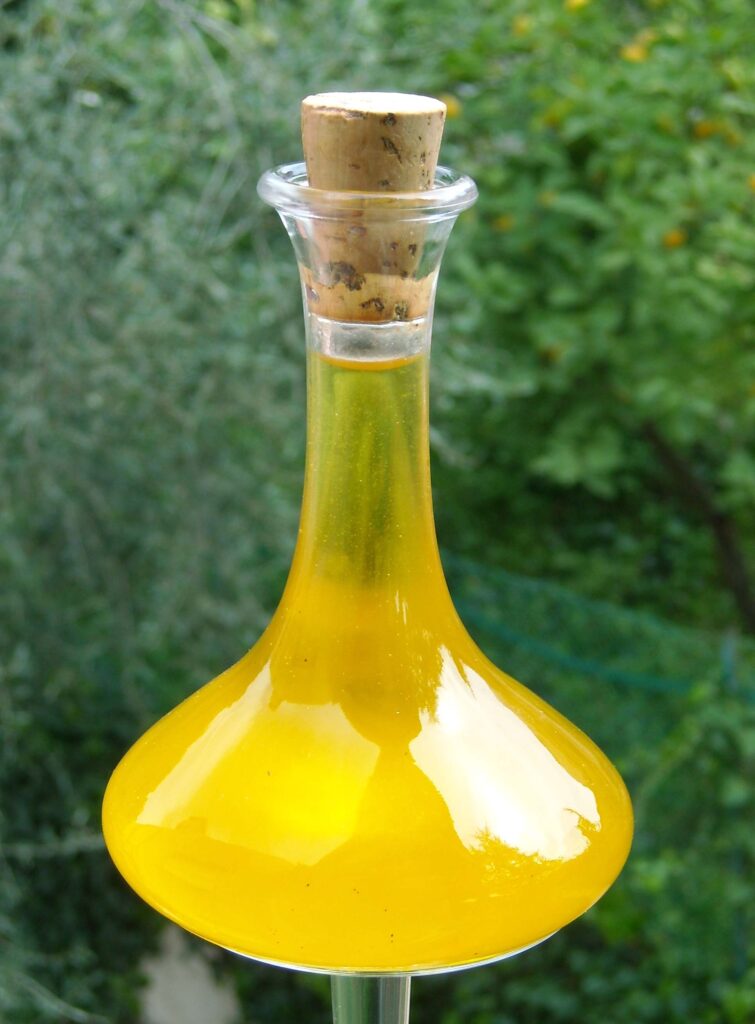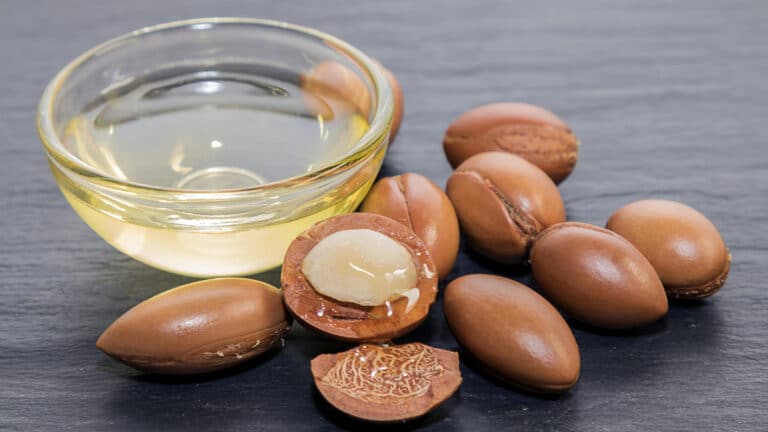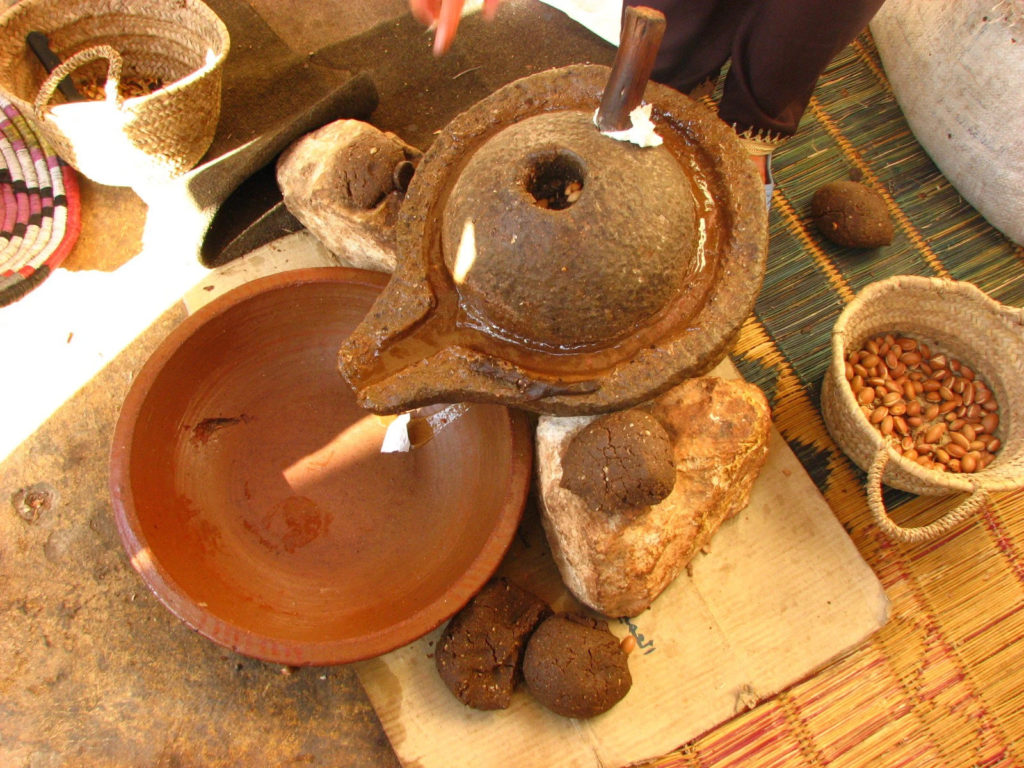As a Moroccan Chef, I have tried countless hair and skin products throughout my career. However, none have impressed me quite like Moroccan oil. This luxurious oil has transformed my hair and skin health and become a staple in my daily routine.
Derived from the kernels of the argan tree, Moroccan oil is known for its nourishing and moisturizing properties. Packed with antioxidants, fatty acids, and vitamins, this oil helps to restore and revitalize hair and skin for a healthy, radiant glow.
Key Takeaways
- Moroccan oil is derived from the kernels of the argan tree and is known for its nourishing and moisturizing properties.
- Moroccan oil is packed with antioxidants, fatty acids, and vitamins that help to restore and revitalize hair and skin health.
- As a Moroccan Chef, I highly recommend experiencing the magic of Moroccan oil for yourself.
What is Moroccan Oil and How Does it Work?
As someone who has struggled with dry, frizzy hair and skin, I can attest to the amazing benefits of Moroccan oil. But what exactly is it?
Moroccan oil, also known as argan oil, is derived from the kernels of the argan tree, which is native to Morocco. It has been used for centuries in traditional Moroccan medicine and is now a popular ingredient in hair and skin care products.
The oil is rich in antioxidants, fatty acids, and vitamin E, which work together to nourish and protect hair and skin.
How Does Moroccan Oil Work?
When it comes to hair, Moroccan oil works by penetrating the hair shaft and providing intense moisture. This helps to reduce frizz, improve manageability, and add shine.
For skin, Moroccan oil works as a natural moisturizer. It is easily absorbed and helps to improve skin’s texture and elasticity. It also has anti-inflammatory properties, making it great for soothing and calming irritated skin.
Overall, the natural ingredients and nourishing properties of Moroccan oil make it a highly effective ingredient in hair and skin care products.
The Benefits of Moroccan Oil for Hair
As someone who struggles with dry, frizzy hair, I was thrilled to discover the transformative power of Moroccan oil. This natural oil, derived from the kernels of the argan tree in Morocco, is loaded with nourishing vitamins and minerals that can help improve hair health and appearance.
Add Moisture
Moroccan oil is particularly effective at adding moisture to dry, damaged hair. Its high content of fatty acids and antioxidants penetrate hair fibers, providing a deep conditioning treatment that restores shine and softness. I noticed a significant improvement in my hair’s texture and manageability after just a few uses of Moroccan oil.
Reduce Frizz
The smoothing properties of Moroccan oil can also help reduce frizz and flyaways. This is because the oil creates a protective barrier around hair strands, preventing moisture from escaping and humidity from entering. I found that even in humid conditions, my hair stayed smooth and frizz-free when I used Moroccan oil.
Define Curls
For those with curly hair, Moroccan oil can be a game-changer. It provides the moisture and definition that curls need to look their best. Using products like Moroccan oil curl cream or curl defining cream can help enhance natural curl patterns, reduce frizz, and provide long-lasting hold.
Nourish Scalp
Not only does Moroccan oil benefit hair strands, but it can also nourish the scalp. Its anti-inflammatory properties may help soothe an irritated scalp, while its moisturizing properties can help prevent dryness and flakiness. This can promote a healthier environment for hair growth.
Repair Damage
If you have damaged hair from heat styling or chemical treatments, Moroccan oil can help repair and strengthen it. Its protein content can help fortify hair strands, while its antioxidant content can protect against further damage. I found that using a Moroccan oil hair mask or leave-in conditioner once a week helped restore my hair’s vitality.
Overall, incorporating Moroccan oil into your haircare routine can lead to healthier, more manageable hair. From adding moisture and reducing frizz to defining curls and repairing damage, there are many benefits to be gained from using this natural oil.
The Benefits of Moroccan Oil for Skin
As someone with dry and sensitive skin, finding a skincare product that can effectively moisturize without causing irritation has been a challenge. That is until I discovered Moroccan oil.
Moroccan oil is rich in antioxidants, essential fatty acids, and vitamin E, making it an excellent ingredient for improving skin health. It has a lightweight texture that makes it easily absorbed into the skin, providing hydration and nourishment without leaving a greasy residue. It works by restoring the skin’s natural barrier, preventing moisture loss and protecting it from environmental stressors.
One of the main benefits of using Moroccan oil for skin is its ability to improve skin texture and elasticity. Regular use can help diminish the appearance of fine lines and wrinkles, leaving the skin looking smoother and more youthful.
Another benefit of Moroccan oil is its potential to soothe and calm the skin. Its anti-inflammatory properties make it an ideal ingredient for those with sensitive or reactive skin. It can help reduce redness, irritation, and inflammation, leaving the skin feeling calm and balanced.
Overall, incorporating Moroccan oil into your skincare routine can help improve skin health and appearance. Whether used as a moisturizer, facial oil, or an ingredient in skincare products, its nourishing properties are sure to leave your skin feeling soft, smooth, and radiant.
Incorporating Moroccan Oil into Your Haircare Routine
Adding Moroccan oil to your haircare routine can transform your hair’s health and appearance. Here are some tips on how to incorporate it into your routine:
Use Moroccan Oil Treatments
One of the best ways to use Moroccan oil is as a treatment. Apply it directly to your hair and leave it for at least 30 minutes before washing it off. You can also use it overnight as a deep conditioning treatment for extra nourishment.
Switch to Moroccan Oil Shampoo and Conditioner
Using Moroccan oil shampoo and conditioner can provide constant nourishment for your hair. Look for products that contain pure Moroccan oil and avoid those that contain harsh chemicals that can strip your hair of its natural oils.
| Product | Description |
|---|---|
| Moroccan oil shampoo | Cleanses and nourishes hair |
| Moroccan oil conditioner | Hydrates and detangles hair |
| Moroccan oil dry shampoo | Refreshes hair between washes |
Try Moroccan Oil Curl Cream or Curl Defining Cream
If you have curly hair, Moroccan oil curl cream or curl defining cream can enhance your curls and reduce frizz. Apply to damp hair before styling for best results.
Use Moroccan Oil Hair Mask or Leave-In Conditioner
For an extra boost of hydration, use a Moroccan oil hair mask or leave-in conditioner. Apply to damp hair and leave in for several hours or overnight for deep conditioning.
Incorporating Moroccan oil into your haircare routine can provide numerous benefits for your hair’s health and appearance. Try adding it to your routine today!
Incorporating Moroccan Oil into Your Skincare Routine
If you’re looking to improve the health and appearance of your skin, incorporating Moroccan oil into your skincare routine can be a game-changer. Here are some tips to help you get started:
Use Moroccan Oil as a Moisturizer
One of the easiest ways to incorporate Moroccan oil into your skincare routine is by using it as a moisturizer. Simply apply a few drops of oil onto your face and neck after cleansing and toning. The oil will provide deep hydration to your skin, leaving it soft, supple, and glowing.
Use Moroccan Oil as a Facial Oil
Another way to use Moroccan oil is by applying it as a facial oil. This can help to improve your skin’s texture, reduce the appearance of fine lines and wrinkles, and give your skin a healthy, radiant glow. To use, simply apply a few drops of oil onto your fingertips and gently massage into your skin.
Look for Skincare Products that Contain Moroccan Oil
Many skincare products on the market today contain Moroccan oil as a key ingredient. Look for products like cleansers, toners, serums, and moisturizers that contain this nourishing oil. These products can help to provide even more benefits for your skin.
By incorporating Moroccan oil into your skincare routine, you can help to improve the health and appearance of your skin, leaving it looking and feeling its best.
The Benefits of Moroccan Oil for Hair and Skin – My Personal Experience
As a professional copywriting journalist, I have had the opportunity to explore and experience various hair and skin care products. However, Moroccan oil has been a game-changer for me, revolutionizing my hair and skin wellness journey.
The nourishing properties of Moroccan oil have deeply moisturized my hair and skin, leaving them feeling soft, silky, and healthy.
Initially, I was hesitant to try Moroccan oil, fearing that it would make my hair and skin greasy or weigh them down. However, after incorporating it into my routine, I realized that my hair and skin felt lighter and more manageable than ever before.
One of the most significant benefits of using Moroccan oil is that it can reduce frizz and define curls. As someone with naturally curly hair, I struggled with defining and taming my curls. Since using Moroccan oil, my curls have become more defined, bouncy, and manageable.
I have also noticed an improvement in the texture and elasticity of my skin. The Moroccan oil has moisturized my skin, reducing dryness and flakiness, while also providing a soothing and calming effect on any irritation or redness.
Overall, I highly recommend using Moroccan oil for hair and skin wellness. Its nourishing properties have transformed my hair and skin, and I’m confident it will do the same for others.
The Frequently Asked Questions about Moroccan Oil
As a professional copywriting journalist who has extensively researched and used Moroccan oil, I have come across several commonly asked questions. Here are the answers to the most frequently asked questions about Moroccan oil:
Is Moroccan oil suitable for all hair types?
Yes, Moroccan oil is suitable for all hair types, including curly, straight, thin, thick, and color-treated hair. It is a versatile product that works to nourish and protect all hair types and textures.
Can Moroccan oil be used on skin?
Yes, Moroccan oil can be used on the skin. It has moisturizing and nourishing properties that can help improve skin health and texture. However, it is important to note that not all Moroccan oil products are designed for use on the skin, so be sure to check the label before use.
Are there any side effects of using Moroccan oil?
When used as directed, Moroccan oil is generally safe to use and does not have any known side effects. However, some people may experience allergies or sensitivity to certain ingredients used in Moroccan oil products. As a precaution, conduct a patch test before applying it to your hair or skin.
How often should I use Moroccan oil?
The frequency of use depends on the individual’s hair and skin needs. For hair, it is recommended to use it once or twice a week as a treatment or daily to protect and nourish hair. For skin, it can be used daily as a moisturizer or incorporated into a skincare routine a few times a week.
What are the best Moroccan oil products for haircare?
There are several Moroccan oil products that work well for haircare, including shampoos, conditioners, hair masks, leave-in treatments, and styling products such as curl cream and defining cream. It is important to select products based on your hair type and needs.
What are the best Moroccan oil products for skincare?
Moroccan oil is often used as a moisturizer or added to skincare products such as facial oils and serums. Look for products that have pure Moroccan oil or argan oil as one of the primary ingredients.
Can Moroccan oil help with hair growth?
While Moroccan oil cannot directly promote hair growth, it can help improve the health of the hair follicles and scalp, which can indirectly aid in hair growth. Regular use of Moroccan oil can also prevent hair breakage and damage, allowing hair to grow longer and healthier.
Is Moroccan oil sustainable and ethically sourced?
Many Moroccan oil products claim to be sustainable and ethically sourced. However, it is important to research and select products from reputable brands that source their ingredients responsibly and support fair trade practices.
Tips for Choosing and Using Moroccan Oil Products
When it comes to choosing and using Moroccan oil products, there are a few things to keep in mind to ensure you get the best results. Here are some tips:
Consider your hair and skin type
Not all Moroccan oil products are created equal, so it’s important to consider your hair and skin type when choosing which products to use. For example, if you have fine hair that gets weighed down easily, you might want to opt for a lighter-weight Moroccan oil treatment. Similarly, if you have oily skin, you might want to avoid using Moroccan oil as a facial oil and instead opt for a moisturizer that contains a smaller amount of oil.
Start with a small amount
One of the key benefits of Moroccan oil is that a little goes a long way. When using Moroccan oil products, start with a small amount and build up as needed. This will help you avoid using too much product and prevent your hair or skin from becoming greasy or oily.
Don’t forget about heat protection
If you’re using Moroccan oil products for your hair, it’s important to also use heat protection when styling with hot tools. Moroccan oil treatments can help protect your hair from damage, but they can’t fully prevent it. Using a heat protectant spray or serum in addition to your Moroccan oil treatment can help keep your hair healthy and protected.
Apply to damp hair or skin
To get the most out of your Moroccan oil products, it’s best to apply them to damp hair or skin. This will help the products penetrate more deeply and provide better results. For example, if you’re using a Moroccan oil hair mask, apply it after shampooing and conditioning your hair while it’s still damp for optimal results.
Use in moderation
While Moroccan oil can be incredibly beneficial for your hair and skin, it’s important to use it in moderation. Overuse of Moroccan oil products can lead to greasy or oily hair and skin, so make sure to follow the recommended usage instructions on the product packaging.
The Future of Moroccan Oil in Hair & Skin Care
As the beauty industry continues to explore natural ingredients and their benefits, Moroccan oil has become a staple in hair and skincare products. Its use is expanding beyond its traditional oil form, with new product developments incorporating it into shampoos, conditioners, masks, and creams.
The nourishing and rejuvenating properties of Moroccan oil make it a versatile and valuable ingredient for hair and skin care. With its high Vitamin E and fatty acid content, it can deeply moisturize and protect the skin. Its ability to tame frizz and define curls has made it a go-to for many hair types, providing a healthy and natural-looking shine.
In the future, we can expect to see even more innovative uses of Moroccan oil. From hair serums to facial oils, the possibilities are endless. As research continues, we may uncover even more benefits and applications for this natural wonder. One thing is clear: Moroccan oil will continue to be a star ingredient in the beauty industry for years to come.
Experience the Transformative Power of Moroccan Oil
Throughout my personal journey and research, the benefits of Moroccan oil for hair and skin wellness have become undeniable. Its natural ingredients and nourishing properties make it an essential addition to any beauty routine.
If you’re looking to improve the health and appearance of your hair, Moroccan oil can add moisture, reduce frizz, and define curls. It also provides overall nourishment, leaving your hair looking and feeling healthier.
For your skin, Moroccan oil can improve texture and elasticity while moisturizing and calming irritation. It’s a versatile ingredient that can be used as a moisturizer, facial oil, or as an ingredient in skincare products.
If you’re new to Moroccan oil, incorporating it into your hair and skincare routines may seem intimidating. However, using Moroccan oil treatments, shampoos, and conditioners, can maximize the benefits for your hair. As for skincare, applying Moroccan oil as a moisturizer or facial oil can result in noticeable improvements.
As the hair and skincare industry continues to evolve, Moroccan oil-based products will likely undergo exciting advancements. From new product developments to emerging trends, it’s clear that the future of Moroccan oil in beauty care is bright.
In conclusion, I highly recommend experiencing the transformative power of Moroccan oil for yourself. Its benefits for hair and skin wellness are undeniable, and it has become an essential part of my daily routine. I encourage you to try it for yourself and see the amazing results firsthand.



